 Today, Annie Whitehead, a fellow contributor to ‘Fate: Tales of History, Mystery and Magic, visits my blog! She’s a prize-winning writer, historian, and Fellow of the Royal Historical Society, and has written four award-winning novels set in ‘Anglo-Saxon’ Mercia. Apart from contributing to fiction and nonfiction anthologies and writting for various magazines, Annie has twice been a prize winner in the Mail on Sunday Novel Writing Competition, and won First Prize in the 2012 New Writer Magazine’s Prose and Poetry Competition.
Today, Annie Whitehead, a fellow contributor to ‘Fate: Tales of History, Mystery and Magic, visits my blog! She’s a prize-winning writer, historian, and Fellow of the Royal Historical Society, and has written four award-winning novels set in ‘Anglo-Saxon’ Mercia. Apart from contributing to fiction and nonfiction anthologies and writting for various magazines, Annie has twice been a prize winner in the Mail on Sunday Novel Writing Competition, and won First Prize in the 2012 New Writer Magazine’s Prose and Poetry Competition.
In addition, she’s been a finalist in the Tom Howard Prize for nonfiction and was shortlisted for the Exeter Story Prize and Trisha Ashley Award 2021. In 2017, she won the inaugural Historical Writers’ Association (HWA)/Dorothy Dunnett Prize and was subsequently a judge for that same competition. She has also been a judge for the HNS (Historical Novel Society) Short Story Competition, and was a 2024 judge for the HWA Crown Nonfiction Award.
Her nonfiction books are Mercia: The Rise and Fall of a Kingdom (a #1 Amazon Best-seller, published by Amberley books) and Women of Power in Anglo-Saxon England (Pen & Sword Books). In 2023, she contributed to a new history of English monarchs, published by Hodder & Stoughton, and in February 2025, Murder in Anglo-Saxon England was published by Amberley Books.
Over to Annie to tell us about her story in Fate: Tales of History, Mystery and Magic.
One definition of fate is ‘the development of events outside a person’s control’. I think it’s fair to say that this applies to those who were caught up in the maelstrom that followed the battle of Hastings in 1066.
We all know who won that fight, even if there are conflicting stories about how Harold Godwineson met his death. William of Normandy was victorious and, whilst much remained the same in England – for example, certainly to start with, William retained much of the machinery of government – for the English people, life was very different.
History is not only written by the victors, as the classic saying goes, it is also more often than not written by men, about men in power. That is why we know so much about the battle and much less about those in the towns and villages whose lives were altered in other ways.
For my story in our new anthology, Fate: Tales of History, Mystery and Magic, I thought about the people who were affected by the outcome of the battle, and what life had been like for them, and what it would become, and there are definitely parallels to be drawn with other periods in history, even into modern times.
Firstly, I imagined what it must have felt like not only to be invaded, but not to be able to understand anything your new masters said. This must have been the reality; folk working the land in England, as opposed to serving in the king’s court, would have no knowledge at all of Norman French, and I daresay the Norman soldiers had no understanding of English. This must have been the case so often in history, where vanquished nations suddenly found that their language was not understood or, in the case of Wales and Ireland, and to a lesser extent Scotland, the languages were banned or suppressed at various points in their history. How terrifying and alienating that must have been. People subject to such laws had no say in the matter. All was decided for them. It was their fate.
Soldiers die on the battlefield, but women suffer in different ways. There were many forced marriages in England after the battle, and we can only imagine how terrifying that would be for the English women to whom this happened. But something else bothered me: what these people had already lived through. Often times when we write or read about people at a particular moment in history, we perhaps don’t think about what else they witnessed or what happened to them, events not of their making, but their destiny, nevertheless.
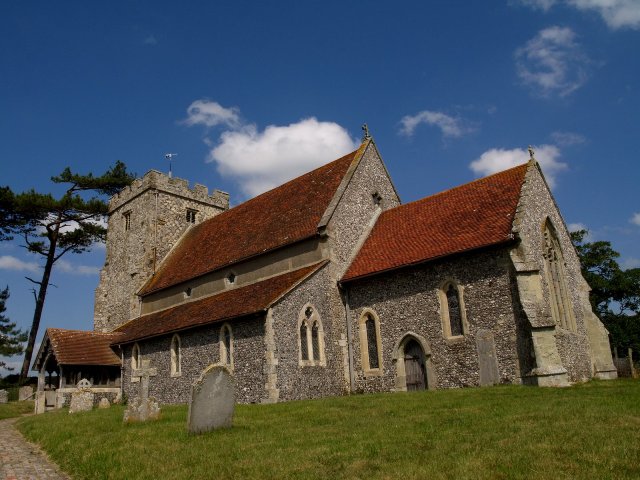
Beddingham Church (Photo: tristan forward CC BY-SA 2.0)
In the story, an old grandmother in an English village (Beddingham in Sussex, which still exists) tries her best to protect her daughter from the new Norman lord. But her tale is more than this, for she is old enough to have remembered other invasions. She saw her Danish father put to death merely for being Danish. She was chased out of her home town by a new wave of Danes, this time for being too English. For her generation, the invasion and subsequent takeover of England by Cnut was an upset to the order of their lives. There were battles up and down the kingdom as Cnut fought first the forces of Æthelred the ‘Unready’ and then his son, Edmund Ironside. As she settled in her new home, she says, she thought never to see such things again in her lifetime. And yet here she is, suffering from yet another, this time Norman, invasion and conquest.
My own maternal granny was born in 1907, and so was a young child when World War One broke out. She, like many others of her generation never thought to see such things again in her lifetime and yet, in 1939, the world went to war again.
My paternal great-grandmother came from a small village which was technically in no-man’s land, but very close to the Belgian/German border. Her name was Elisabeth, and she sounded German. Living in England during both world wars, she was spat on in the street by those who thought she was German.
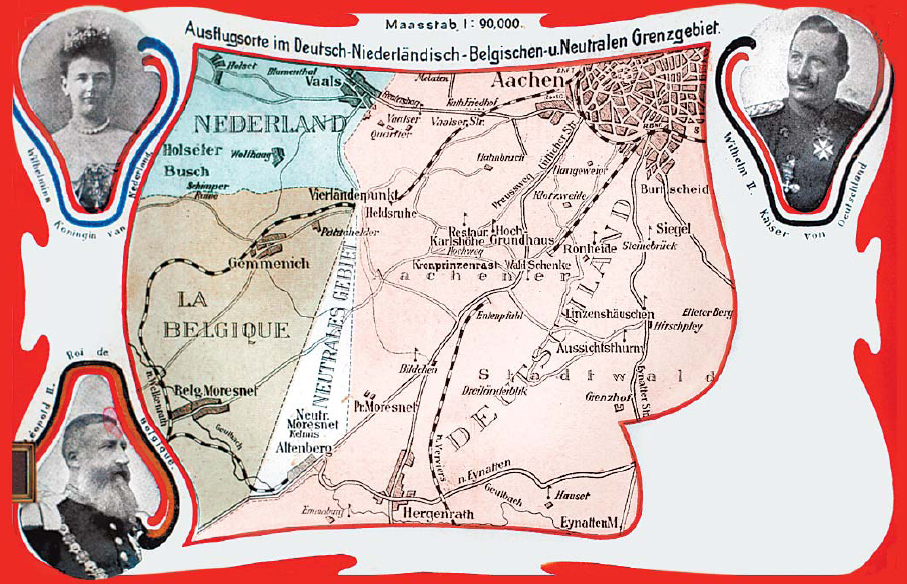
Postcard showing Neutral Moresnet, the village Annie’s great-grandmother came from (At the southernmost part of the Neutrales Gebiet shown in white)
My tale is of refugees, of conquered territories, of strangers not being accepted, of violence and prejudice, of ‘never again’ becoming ‘yes, again’. It happened nearly a thousand years ago, but it resonates today. History sadly continues to repeat itself, and so often the ‘little’ people, those who have no vote, no say in the decision-making process, are at the mercy of events.
For them, it is not their choice, it is their fate.
—————-
Connect with Annie
Website: https://anniewhiteheadauthor.co.uk/
Blog: https://anniewhitehead2.blogspot.com/
Amazon: http://viewauthor.at/Annie-Whitehead
Twitter: https://twitter.com/AnnieWHistory
Facebook: https://www.facebook.com/anniewhiteheadauthor/
Instagram: https://www.instagram.com/anniewhiteheadauthor/
Bluesky: https://bsky.app/profile/anniehistory.bsky.social
—————-
Read To Be A Queen, the true story of Æthelflæd, the ‘Lady of the Mercians’, daughter of Alfred the Great and the only female leader of an Anglo-Saxon kingdom.
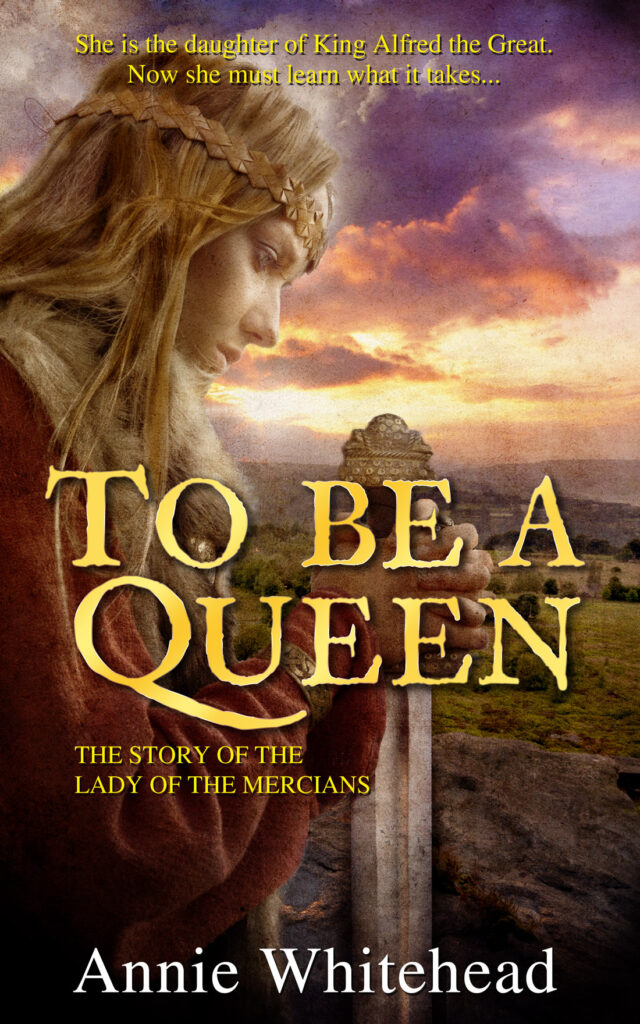 One family, two kingdoms, one common enemy …
One family, two kingdoms, one common enemy …
Born into the royal house of Wessex at the height of the Viking wars, Æthelflæd is sent to her aunt in Mercia as a foster-child, only to return home when the Vikings overrun Mercia. In Wessex, she witnesses another Viking attack and this compounds her fear of the enemy.
She falls in love with a Mercian lord but is heartbroken to be given as bride to the ruler of Mercia to seal the alliance between the two Anglo-Saxon kingdoms. She must learn to subjugate her feelings for her first love, overcome her indifference to her husband and win the hearts of the Mercians who despise her as a foreigner and twice make an attempt on her life.
When her husband falls ill and is incapacitated, she has to learn to rule and lead an army in his stead. Eventually she must fight to save her adopted Mercia from the Vikings and, ultimately, her own brother.
Buy To Be A Queen here: https://mybook.to/To-Be-A-Queen
Alison Morton is the author of Roma Nova thrillers – INCEPTIO, CARINA (novella), PERFIDITAS, SUCCESSIO, AURELIA, NEXUS (novella), INSURRECTIO and RETALIO, and ROMA NOVA EXTRA, a collection of short stories. Audiobooks are available for four of the series. Double Identity, a contemporary conspiracy, starts a new series of thrillers. JULIA PRIMA, Roma Nova story set in the late 4th century, starts the Foundation stories. The sequel, EXSILIUM, is now out.
Find out more about Roma Nova, its origins, stories and heroines and taste world the latest contemporary thriller Double Identity… Download ‘Welcome to Alison Morton’s Thriller Worlds’, a FREE eBook, as a thank you gift when you sign up to Alison’s monthly email update. As a result, you’ll be among the first to know about news and book progress before everybody else, and take part in giveaways.
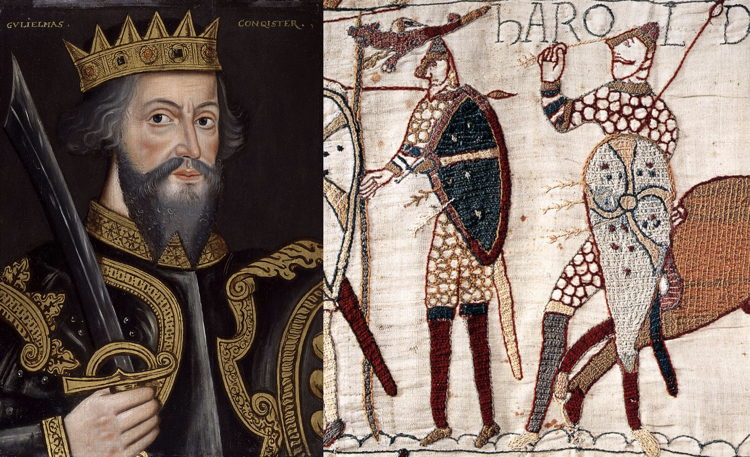
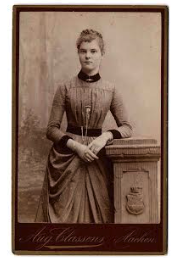











Thanks so much for hosting me today, Alison!
An absolute pleasure. Your own family experience was particularly interesting, an poignant.
A moving and powerful piece, Annie. Your story brings voice to those often left in the margins of history. I liked how you wove the past and present together and I learned something new about the quiet resilience of women through centuries of conflict. I see how it provides “Bramble Creep” with a historical heart. That quiet defiance, that raw fear, that fate of the voiceless.
“Fate” is a satisfying anthology.
Thank you so much for a thoughtful comment on Annie’s story.
Wonderful… I do think your story should be expanded into a full novel. I need to know what happened next…
I agree Helen and Pat – novel material indeed. A great post giving us a glimpse of an intriguing time in history.